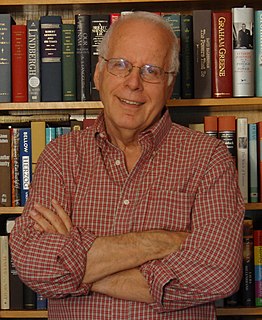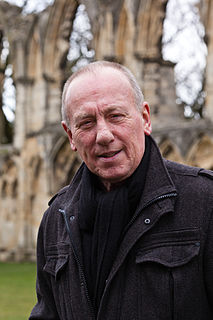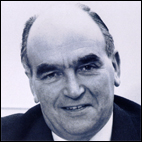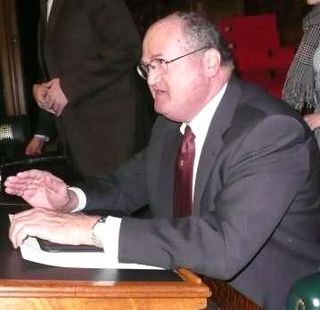A Quote by Nassim Nicholas Taleb
People have the problem of denial. This is one of the things I learned in Lebanon. Everybody who left Beirut when the war started, including my parents, said, 'Oh, its temporary.' It lasted 17 years! People tend to underestimate the gravity of these situations. That's how they work.
Related Quotes
Ireland is a place that's beautiful and interesting, but I remember when I went there as a teenager with my parents, I was like, "Okay, I'll go to Ireland with my parents. It's going to be green." I think people underestimate it, in that it's, "Oh, it's green," and then you get there, and it's like, "Wow, it is green!" It's, "Oh, there's Irish music," and then you get there, and you're like, "Oh, this Irish music is amazing!" You underestimate it.
My parents both left school at 14, but my parents are incredibly smart, successful, thoughtful people. So one of the lessons I learned from my parents is that the fancy degree is just a foot in the door, and there are a lot of very smart people out there who don't necessarily have the fancy degrees. And given the opportunity, they can do amazing things.
For Beirut it was the civil war, and the dividing of the city - which is something that is shared among Beirut, Berlin and Baghdad. And Cairo is a city that has a scar that was born after many decades of dictatorship - oppression shaped the people's lives, and forced people to grow up accompanied by fear. I belong to a generation that, whether we like it or not, was shaped by this fear of death or loosing the people you love, the threat of war, not allowed to be yourself, forced to be silent - as you watch ignorance occupying everything around you. And this is a deep scar.
I think what is probably hard for people to imagine is how wrapped up the 17 years' work on Harry Potter is with what was going on in my life at the time. I was mourning the loss of this world that I had written for so long and loved so much. I was also mourning the retreat it had been from - from ordinary life, which it has been. And it forced me to look back at 17 years of my life and remember things.
I learned a lot about my parents, who were both teachers. I had known that my parents were very strongly in favor of education. I had known that they had an impact on a lot of people, but people came out of the woodwork who have said, "You know, without your father, I would never have gone to college," very successful people. And so I learned how widespread their educational evangelism really was.
After the war people said, 'If you can plan for war, why can't you plan for peace?' When I was 17, I had a letter from the government saying, 'Dear Mr. Benn, will you turn up when you're 17 1/2? We'll give you free food, free clothes, free training, free accommodation, and two shillings, ten pence a day to just kill Germans.' People said, well, if you can have full employment to kill people, why in God's name couldn't you have full employment and good schools, good hospitals, good houses?
The problem is that everybody, everybody - Donald Trump, Paul Ryan, everybody - on the Republican side said they can't do tax reform until Obamacare is improved, they can't do it. I think a lot is known about Obamacare. I think that's why it's so consistently polls with people opposed to it. I think people know how much it's cost particularly to people that have entered the exchanges, but I think everybody does. there's not a person in the world in this country who is not aware of the oppressive, out of any scope of normalcy costs and prices associated with it.




































